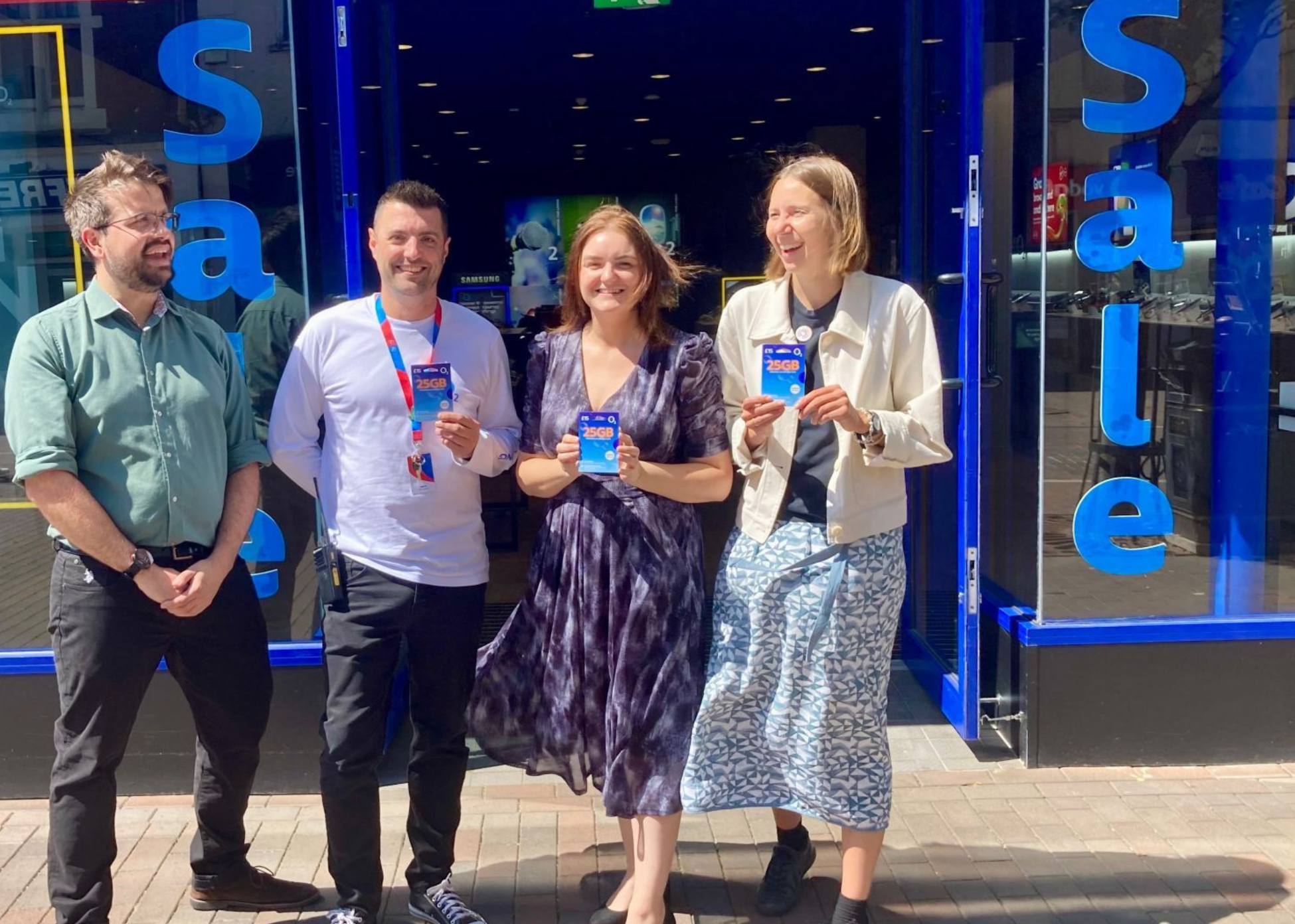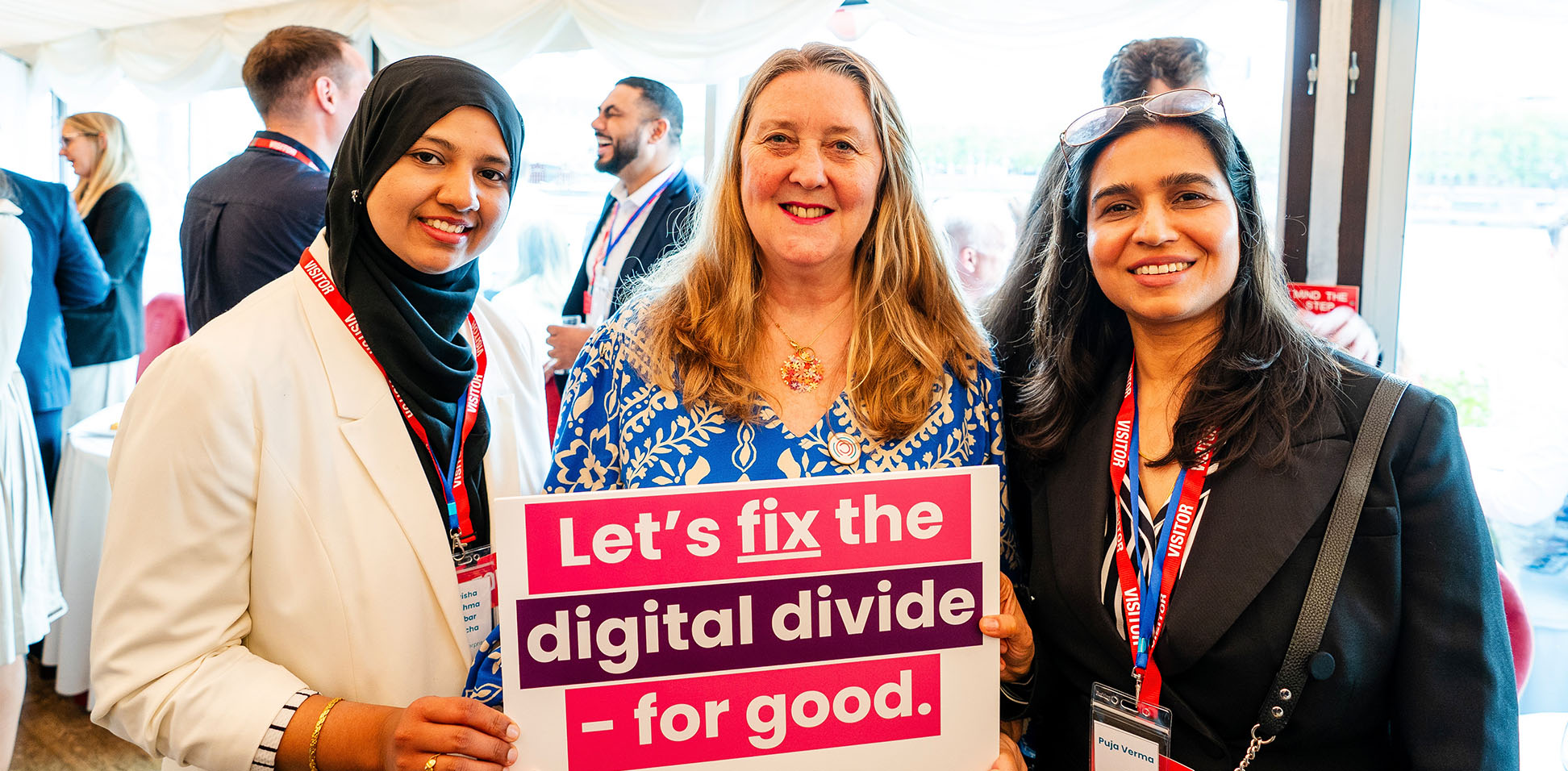This is for everyone: Let's make the original vision for the internet a reality
Our Advocacy Manager, Hannah Whelan, reflects on the original vision for the internet and what we can do to ensure that vision is made into a reality.
In 2012 the inventor of the World Wide Web, Sir Tim Berners-Lee, had a clear message for the world: This is for everyone.
That message, broadcast from the opening ceremony of the London Olympic Games, captured the spirit of both the Games and the web itself. Berners-Lee believed that the values of the Olympics could be magnified through the World Wide Web.
‘It will be like millions of digital torches carrying the spirit of the Games to every corner of the world.’ World Wide Web Foundation, 2012
More than a decade later, that vision has been only partly realised. While the web has in part driven technological and social progress, millions of people remain digitally excluded.
Good Things’ latest Digital Nation infographic reveals the scale in the UK:
- 7.9 million people still lack basic digital skills
- 1.6 million adults don’t own a smartphone
- 1.9 million households struggle to afford their mobile phone contracts.
When Berners-Lee created the web, I’m confident he couldn’t have foreseen a world where digital access would become a luxury. I’m confident he likely never imagined people having to choose between food, fuel, or staying connected.
Recently, I visited a Virgin Media O2 store in Stafford, part of Good Things’ National Databank initiative. The store provides free SIMs to people who need them, just one of many efforts to address data poverty by ensuring people have private, secure, and sufficient data to get online.
.jpg)
Show image description Hide image description
Hannah with Leigh Ingham MP, and Virgin Media O2’s Thomas Poad and Aaron Lacey in Stafford. Three of the group are each holding a SIM card.
Stafford is home to three Databanks, and the demand continues to grow. I talked with VMO2 staff and local MP Leigh Ingham about the need, and how a society relying on ‘banks’ for food, for hygiene products, for internet access is not a future-focused one. These are essentials and connectivity data should be treated as one.
That’s why Phase 3 of our Data Poverty Lab has been exploring lasting solutions. Our new report by Dr Sarah Knowles and Dr Emma Stone looks at how both technology and systems-innovation can drive change. We’re working to turn these ideas into reality, acting on the report’s bold and timely questions:
- Could the Government introduce a Connected Homes Discount—a voucher households could use with any provider and product of their choice?
- What if every organisation requiring online access embedded the National Databank to support their most vulnerable users?
- Could we create a new public digital domain—a space with zero data charges, offering safe, free access to essential services and educational content?
The World Wide Web was created to be a force for equality, intended for everyone. Until we fix the digital divide, millions will continue to be left out from the opportunities it provides. It's time to make Berners-Lee’s vision a reality, so that the internet really is for everyone.


